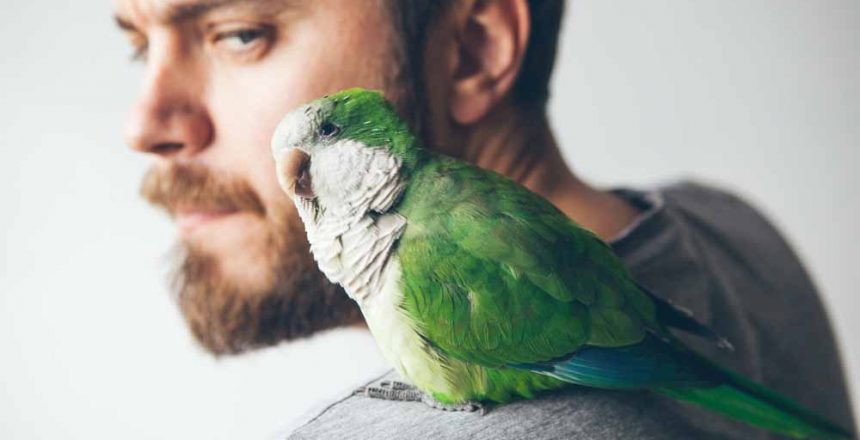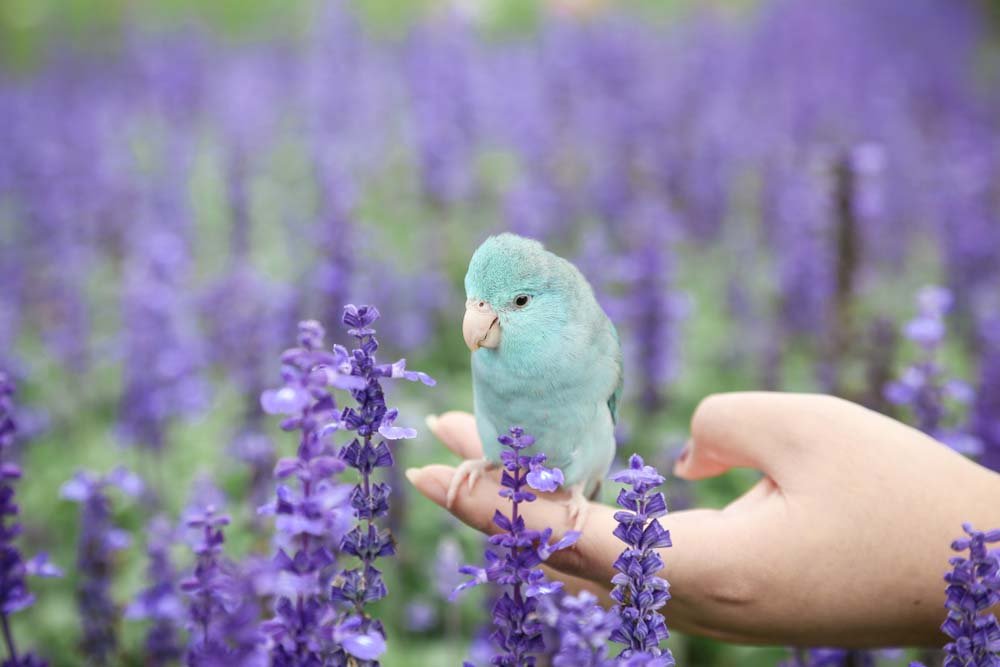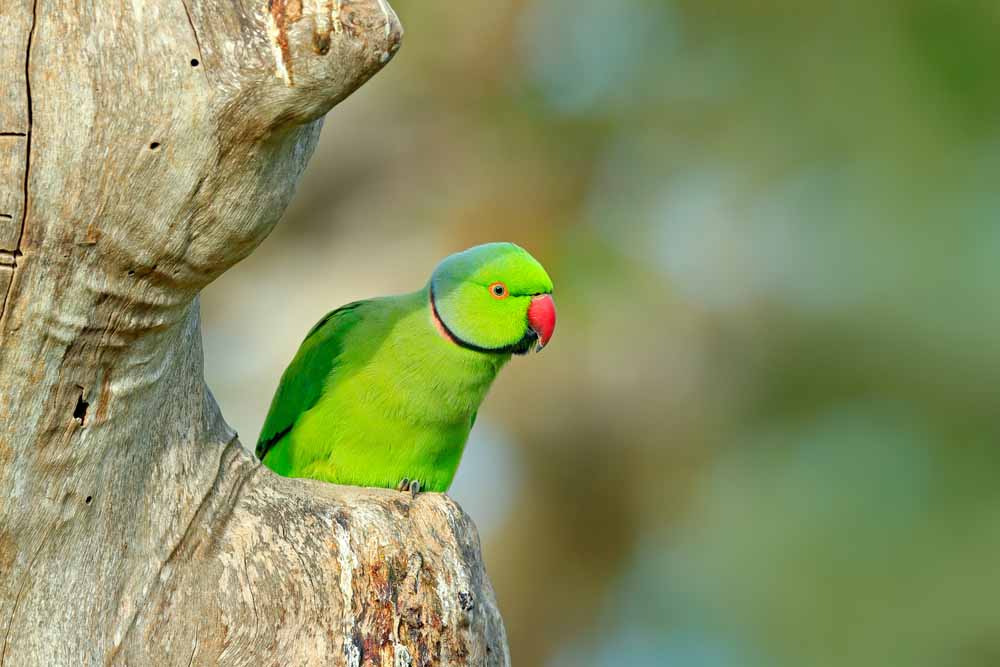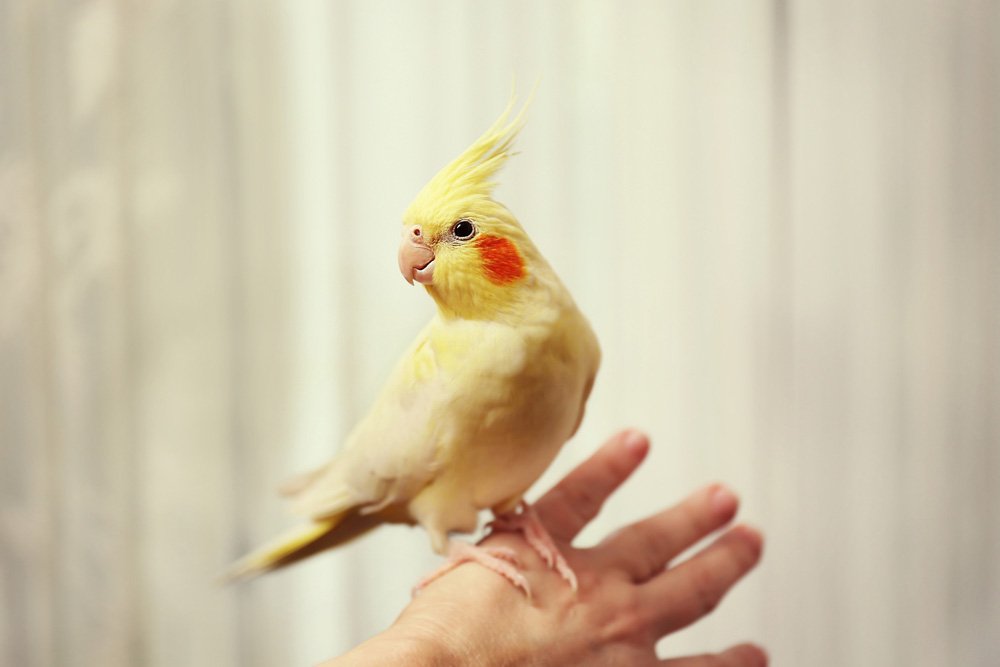The Quaker Parrot is very often referred to by a variety of different names such as the Quaker Parakeet, Monk Parrot, Monk Parakeet, Green Parakeet, Grey-Breasted Parakeet, and Montevideo Parakeet. The Quaker is one of the great pet birds that can make interesting pets also it is considered as a good choice for a first-time bird owner if the new owner is willing to learn how to take care for the bird and to work with it.
The monk parakeets are very popular for their charming, talkative, outstanding, and comical personalities and their ability to learn human speech. They are small, bright-green parrots with a greyish breast and greenish-yellow abdomen. Females tend to be 10–20% smaller, but can only be reliably sexed by DNA or feather testing.
Habitat & distribution :
Quaker parrot, a native of temperate and subtropical areas of Argentina and the surrounding countries in South America, is one of the parrots which is known for building strong community bonds.These birds have a special habit – they are the only parrot that builds nests- they build their nests next to each other only a wall separates the dwelling of each mating pairs, that is called “Quaker apartments.”
How to Take Care of a Quaker Parrot:
Quakers are reported to live up to 30 years, that’s why they need frequent and active care. And, of course, there are several things in combination that help you provide your parrot with the proper care.
[thrive_leads id=’1163′]
Diet: The quaker parakeets are good eaters and their diet should include occasional nuts and seeds – small amounts is enough because some kind of these seeds and nuts may lead the parrot to be overweight- but fruits and vegetables also have to be included which are going to make it a diverse diet.
A repetitive daily may cause boredom (and thus a lack of eating) in Quakers. their diet has to be supplemented with lafeber’s food such as Nutri-Berries, Avi-Cakes, and Premium Daily Diet pellets.Avoid feeding birds avocados, however, as this can be toxic to them; also skip chocolate, caffeine, and alcohol.
Be sure to offer your Quaker fresh water regularly.
Cleanliness: All kind of birds are messy so you need to expect messes and frequent cleaning.Quakers will strew food scraps and will destroy toys.You need to remove bits of junk and replacing the newspaper liner and try to give the cage a quick cleanup daily. The same for water, you should change it everytime and regularly.Take your quaker for annual checks by a good veterinarian, preferably one with a bird specialization.
Cage: Purchase the right cage for your quaker considering safety and security features as well as the size of the cage. Most Quaker parrots would prefer a much bigger cage so they can build their nests. Locate your birdcage in the main living space, such as a living room.
Provide it with a mix of materials such as chewable, climbable and indestructible that hang in the cage or can be held because these toys will occupy and stimulate the parrot’s mind.
Behavior: There are several traits that make Quakers different parrots like: borrowing items from wherever.
Be careful when you want to retrieve your quaker from within the cage. Quakers are known to show aggressive tendencies only when they are neglected or their home is threatened.
Sound: Quakers have exceptional talking abilities, they are quite active, and they love to interact. Generally, a quaker parrot starts using words at the age of 3 months but not every quaker is guaranteed to talk. When Quakers can’t have what they want they start acking-Ack!Ack!Ack!- and their call is a loud and throaty chape(-yee) or quak quaki quak-wi quarr, and screeches.
How to know if a quaker is right for you :
In the right environment, a quaker can be a lovable companion for years to come, but before thinking of raising one you should know first if it is legal to acquire one in the place where you live because it is illegal to sell or own in some areas.
- Keep in mind, that you need to add the cost of other needs- like the cage, bowls, toys..- to the price of the bird; also you will spend money per month on the food.
- Like many parrot species, Quaker parrots can live in excess of 30 years. This can be quite the time commitment for anyone. You should be certain that you will commit to caring this wonderful parrot for 20-30 years or maybe more.
- quakers build their nests and borrow items from you if you, that’s why you need to hide your accessories, pens, watches, eyeglasses…



